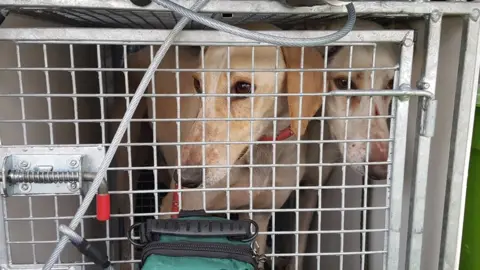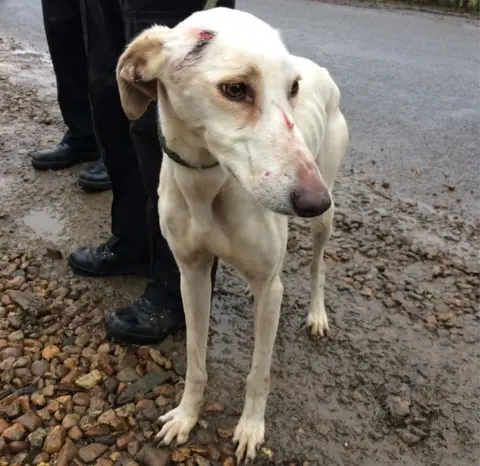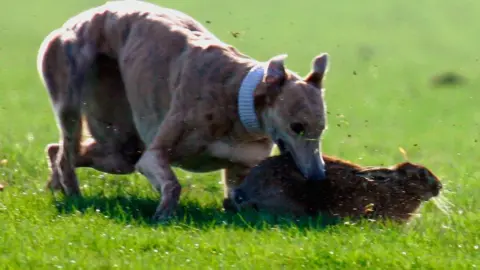Lincolnshire Police considers foster scheme for seized dogs
 BBC
BBCDogs seized in hare coursing operations could be fostered by members of the public under a scheme being considered by Lincolnshire Police.
The force seized 76 dogs during the 2017-18 season, which runs from September until March, as part of operations to disrupt activity.
Supt Phil Vickers said the tactic was effective but had "come at a cost".
He said he believed a foster scheme would both reduce costs and provide a safe home for the animals.
Currently, dogs are looked after in kennels pending the outcome of court proceedings.
Supt Vickers said: "Lincolnshire saw a 30% reduction in the number of hare coursing incidents last year, and while any change is likely to be a combination of factors, my view is that adopting the tactic of seizing dogs was the single greatest contributor."
However, there is a financial impact on the force for every dog seized, as it pays for the animals to be housed in kennels, he added.

Police said coursers can be engaged in illegal betting activities and the dogs involved can also be worth thousands of pounds.
In one case last year, suspected coursers had their dogs seized after travelling 200 miles from Bishop Auckland, near Darlington.
They told police they were in Lincolnshire to "walk their dogs".
In a separate incident, another suspected courser, who had travelled from Middlesbrough, told the BBC the tactic was unlikely to deter him.
"We come for the flat land - to see our dogs run properly, and there are better hares down here," he said.
He claimed to have made £15,000 from one of his dogs, but said the main reason for hare coursing was to "have fun".

Hare coursing
 Getty Images
Getty Images- Since 2005, hare coursing has been illegal throughout the UK. The Hunting Act 2004 makes it an offence to hunt wild mammals with dogs
- The dogs - usually greyhounds, lurchers or salukis - are on a slip lead, threaded so it can be easily released
- The coursers will walk along the field to frighten the hare into the open
- The dog catches the hare and kills it by "ragging" it - shaking the animal in its teeth
- The dead hare is usually left in the field or thrown in a ditch
Source: Lincolnshire Police

